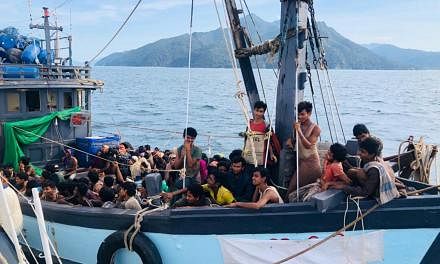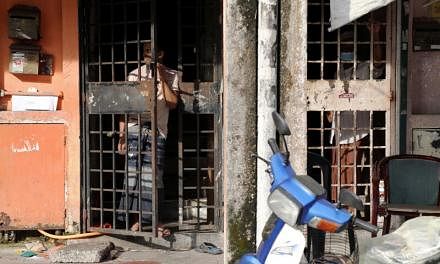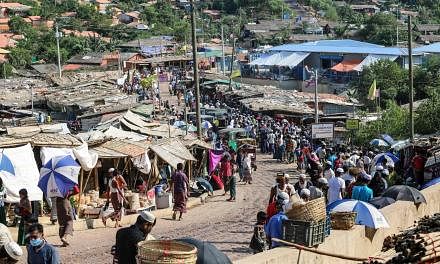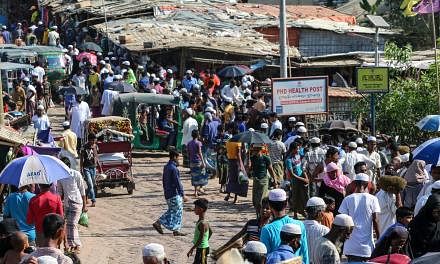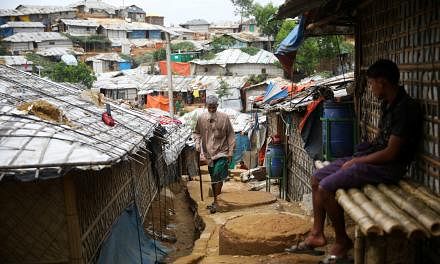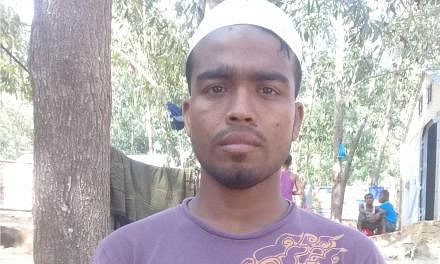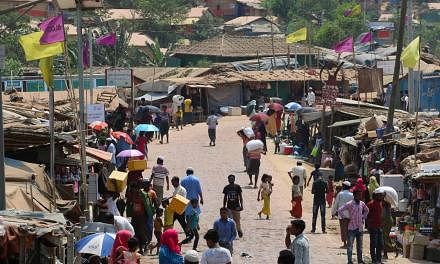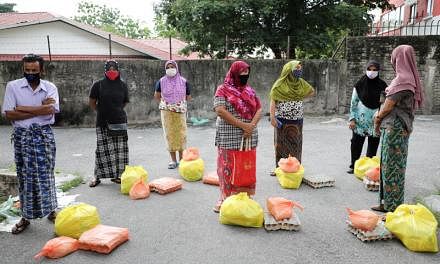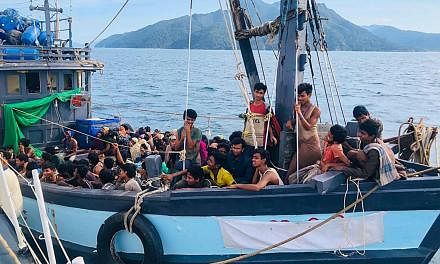YANGON (AFP) - Myanmar and Bangladesh agreed to repatriate Rohingya recently displaced by an army crackdown "within two years", Dhaka said on Tuesday (Jan 16), outlining the first clear timeline for a return of hundreds of thousands of refugees.
The agreement, finalised in Myanmar's capital this week, says that the process would be "completed preferably within two years from the commencement of repatriation," according to a statement from the Bangladeshi government.
It follows a pact between the countries in November paving the way for repatriations from Jan 23, a deadline that is likely to slip given the logistical challenges of the cross-border operation.
The deal applies to Rohingya who fled Myanmar in two major outbreaks of violence since October 2016, when militants from the stateless Muslim minority first attacked border-guard posts in northern Rakhine state.
It does not cover Rohingya refugees who were living in Bangladesh prior to that date who the UN estimates number at 200,000.
"During this two-day meeting, we agreed on the form that refugees will have to fill to be able to come back to Myanmar," Mohammad Sufiur Rahman, Bangladesh ambassador in Myanmar told AFP.
"We should be able to start the process in the coming days," he said, but added Myanmar's stated deadline of next week for starting Rohingya repatriation was "not possible".
While thin on details, Dhaka said the verification form would be based on "family units" and include orphans and "children born out of unwarranted incidence."
"We should be able to start the process in the coming days," Bangladesh's ambassador to Myanmar, Mohammad Sufiur Rahman, told AFP.
He ruled out Myanmar's stated deadline of next week for starting Rohingya repatriation as "not possible".
Myanmar has faced intense diplomatic pressure to allow the safe return of Rohingya refugees driven out by its army, a campaign the UN and US have described as ethnic cleansing.
Last week the army for the first time admitted to an atrocity when it said security forces had taken part in the massacre of what it described as 10 Rohingya "terrorists".
The murdered men were in their custody days after militant raids on police post prompted the unrelenting crackdown.
Many Rohingya in the crowded, unsanitary camps in Bangladesh say they will not return to Rakhine, having fled atrocities including murder, rape and arson attacks on their homes.
Rights groups and UN investigtors say they have gathered comprehensive testimony of massacres and campaings of sexual violence against Rohingya women, while satellite photos show the complete destruction of scores of Rohingya villages.
Aid agencies have stressed the need for a safe and voluntary return for repatriation to be considered legitimate.
"We believe that the pace of the return should be dictated by the refugees themselves. That it's really important to hear what they want, and they have been telling us that before they return they would like to see certain conditions in place," Vivian Tan, spokesperson for the UN refugee agency told AFP.
Repeated rounds of violence since the 1970s have sent the Rohingya fleeing across the narrow neck of water that separates Rakhine from Bangaldesh.
Some refugees have never returned, while others have been repatriated in previous deals only to be forced out by fresh vioelnce.
The UN's Tan said Rohingya in Bangladesh have cited their legal status in Myanmar and a safe environment as conditions for their return.
Myanmar does not recognise the Rohingya as an ethnic group entitled to rights protections or citizenships and considers them illegal immigrants from Bangladesh despite many living there for generations.
Under the deal, Bangladesh said it would establish five "transit camps" to process refugees into two reception centres in Myanmar's Rakhine state. Despite repatriation concerns authorities in Myanmar have pressed ahead with the construction of a "temporary camp" in Rakhine's Maungdaw district.
Eventually the site "will accommodate about 30,000 people in its 625 buildings" before they can be resettled permanently, Myanmar's state media reported this week.
But only a fraction of the buildings have been finished. Myanmar authorities were not immediately reachable for comment.

